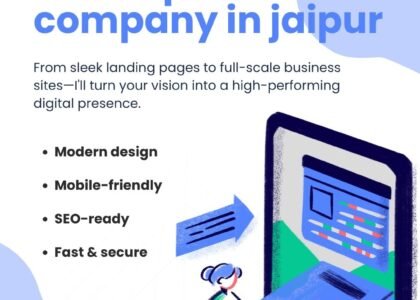The travel industry in 2025 is more dynamic, complex, and customer-centric than ever before. Travelers demand seamless experiences, personalized offers, and instant access to a vast array of choices. For travel businesses, keeping pace requires not just robust technology, but intelligent Travelport GDS Integration that acts as a strategic differentiator. In this evolving landscape, integrating with Global Distribution Systems (GDS) like Travelport isn’t just about accessing inventory; it’s about unlocking a future of enhanced efficiency, global reach, and unparalleled customer satisfaction.
The Evolving Role of GDS in 2025
In 2025, GDS platforms like Travelport are no longer merely booking engines. They have transformed into sophisticated modern retailing platforms, acting as central hubs that aggregate diverse travel content and facilitate complex transactions.
- Multi-Source Content Aggregation: Travelport continues to expand its offerings, consolidating content from hundreds of airlines (including NDC and traditional EDIFACT content), hundreds of thousands of hotel properties, thousands of car rental locations, and various rail operators. This multi-source content strategy is crucial for travel agents and online travel agencies (OTAs) to offer comprehensive and competitive options to their clients.
- Modern Retailing Capabilities: The emphasis is firmly on “modern retailing,” which means not just displaying prices, but also rich content, branded fares, ancillary services (like seat selection, baggage, in-flight meals), and personalized bundles. This allows travel businesses to differentiate their offerings and maximize revenue beyond basic fares.
- API-First Approach: The backbone of modern GDS integration is the API-first approach. Travelport’s Universal API and JSON APIs provide flexible, lightning-fast access to its vast content. This allows developers to build highly customized booking engines, travel portals, and internal tools that seamlessly connect to the GDS, ensuring real-time data exchange and dynamic pricing.
The Strategic Benefits of Travelport GDS Integration in 2025
Integrating with Travelport GDS in 2025 offers a multitude of strategic advantages for travel businesses:
- Unmatched Global Reach: Travelport connects to an extensive network of travel agencies and corporates worldwide. For travel businesses, this means immediate access to a global distribution network, significantly increasing visibility and booking potential in both leisure and corporate travel markets.
- Real-Time Inventory and Pricing: The ability to access real-time availability and pricing is non-negotiable in 2025. Travelport GDS integration ensures that travel agents and customers always see the most up-to-date information, reducing the risk of overbooking or underbooking and enabling dynamic pricing strategies based on demand.
- Enhanced Personalization and Customization: Driven by AI and advanced analytics, Travelport allows for greater personalization. Integrated solutions can leverage this to offer customized recommendations, bundled packages, and tailored promotions based on individual traveler preferences and booking history. This leads to higher conversion rates and improved customer loyalty.
- Streamlined Operations and Automation: GDS integration significantly streamlines the entire booking process. Automated processes for booking management, itinerary creation, and post-booking services reduce manual effort, minimize errors, and boost operational efficiency. This frees up travel agents to focus on complex customer service and upselling opportunities.
- Time and Cost Savings: By centralizing access to diverse travel content and automating workflows, Travelport GDS integration helps travel agencies save considerable time and operational costs. It reduces the need for manual searches across multiple supplier platforms and simplifies the management of various bookings.
- Future-Proofing Your Business: Travelport is continuously investing in innovation. Integrating with its platform means your business can leverage upcoming features in AI, VR, blockchain, and sustainable travel practices, ensuring your solutions remain competitive and relevant in the evolving travel ecosystem of 2025 and beyond.
Key Trends and Considerations for Integration in 2025
As the travel industry accelerates, so do the technologies enabling GDS integration. Here are critical trends and considerations:
- AI and Automation: Expect GDS integration to be increasingly infused with AI. This includes AI-powered personalization engines recommending the best flights or hotels, chatbots providing automated customer support, and AI assisting with demand forecasting and dynamic pricing. Integration should allow for seamless flow of data to and from these AI tools.
- Cloud-Based Systems: The shift to cloud-based GDS platforms offers increased flexibility, scalability, and real-time updates. Development efforts should prioritize cloud-native integration strategies to fully leverage these benefits.
- NDC (New Distribution Capability) Evolution: NDC is maturing, enabling airlines to offer richer content and more personalized deals directly to travel agents. Successful Travelport GDS integration in 2025 must seamlessly handle both traditional EDIFACT and NDC content, allowing side-by-side comparisons and efficient servicing of NDC bookings.
- API Security and Compliance: With increasing data volumes and stricter privacy regulations (like GDPR), robust API security and data compliance are non-negotiable. Integration practices must employ strong encryption, access controls, and ensure that data in transit adheres to all relevant legal frameworks.
- Blockchain for Transparency: While still emerging, blockchain technology is beginning to impact GDS systems by offering enhanced transaction security and transparency. Integration strategies may need to consider how to leverage blockchain for more secure and auditable booking processes in the future.
- User Experience (UX) Focus: Even with powerful backend integration, the front-end user experience remains paramount. Development must focus on intuitive interfaces, fast response times, and a frictionless booking journey for both travel agents and end-consumers.
Travelport GDS Integration GDS in 2025 is more than a technical task; it’s a strategic investment in a resilient, future-ready travel business. By leveraging its vast content, modern retailing capabilities, and AI-powered advancements, travel companies can not only meet but exceed the demands of the modern traveler, securing their competitive edge in a constantly evolving global market. The journey to a truly intelligent and seamless travel experience starts with powerful GDS integration.






